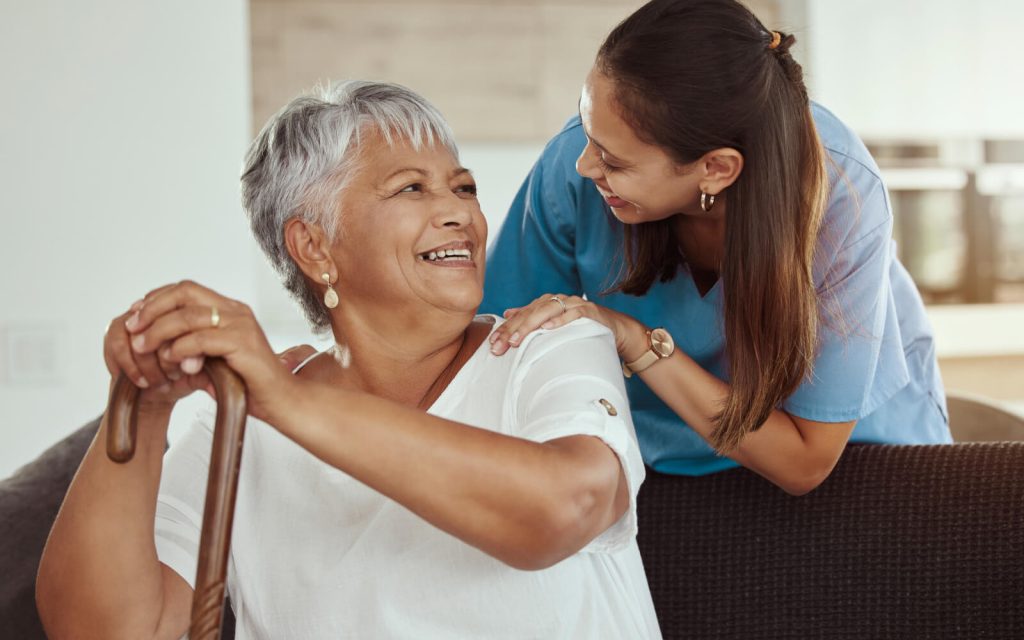6 Tips for Communicating with Residents and Caregivers in Retirement Homes

Effective communication is crucial in retirement homes to ensure that residents and caregivers have a clear understanding of each other’s needs and expectations. Here are six valuable tips for fostering positive and efficient communication in retirement homes: Focus on Active Listening and have Empathy Active listening is a key skill in effective communication. Take the time to truly listen to residents and caregivers, allowing them to express their thoughts, concerns, and needs. Show empathy by acknowledging their emotions and validating their experiences. This can help build trust and create a supportive environment. Maintain eye contact, use open body language, and avoid interrupting when residents or caregivers are speaking. Paraphrase and summarize their comments to ensure you understand their message accurately. Respond with compassion and kindness, considering their perspective and feelings. Use Clear and Respectful Language Using clear and respectful language is essential for effective communication in retirement homes. Keep in mind that some residents may have hearing or cognitive impairments, so it’s important to speak slowly and clearly, using simple and concise sentences. Avoid using jargon or complex medical terminology unless necessary, and always check if residents or caregivers understand the information provided. Respect their privacy and dignity by asking permission before discussing personal matters and ensuring confidentiality. Use Visual Aids and Written Communication to Greater Understanding Visual aids and written communication can enhance understanding and provide reference material for residents and caregivers. Use visual aids, such as charts, diagrams, or pictures, to explain procedures, schedules, or health-related information. This can be particularly helpful for residents with visual impairments or memory difficulties. Provide written materials, such as brochures, newsletters, or handouts, that contain important information about facility policies, upcoming events, or health tips. Use clear and legible fonts and consider using larger print for easier reading. Hold Regular Family Meetings and Provide Updates Organize regular family meetings to keep caregivers informed about their loved one’s well-being, care plans, and any changes in the facility. These meetings provide an opportunity for open dialogue, addressing concerns, and updating caregivers on the resident’s progress. Send regular updates to caregivers, whether through email, newsletters, or a dedicated online portal. These updates can include information about activities, health updates, and reminders. Open channels of communication with caregivers can strengthen trust and collaboration. Account For Multilingual and Cultural Sensitivity In retirement homes with residents from diverse backgrounds, multilingual and culturally sensitive communication is crucial. Hire staff members who can speak multiple languages or provide interpretation services to facilitate effective communication with residents and caregivers who may have limited English proficiency. Be mindful of cultural differences and customs. Respect individual preferences and incorporate cultural practices into the care provided, whenever appropriate and feasible. This promotes inclusivity, understanding, and mutual respect among residents, caregivers, and staff. Have A Channel for Feedback and a Complaint Resolution Process Create a supportive environment where residents and caregivers feel comfortable providing feedback and expressing concerns. Establish a clear process for addressing complaints and resolving conflicts promptly and fairly. Actively seek feedback through surveys, suggestion boxes, or informal discussions to identify areas for improvement and make necessary adjustments. Respond to feedback in a timely and respectful manner, addressing concerns and providing explanations when necessary. Communicate any changes or improvements resulting from the feedback to demonstrate that their input is valued and taken seriously.




